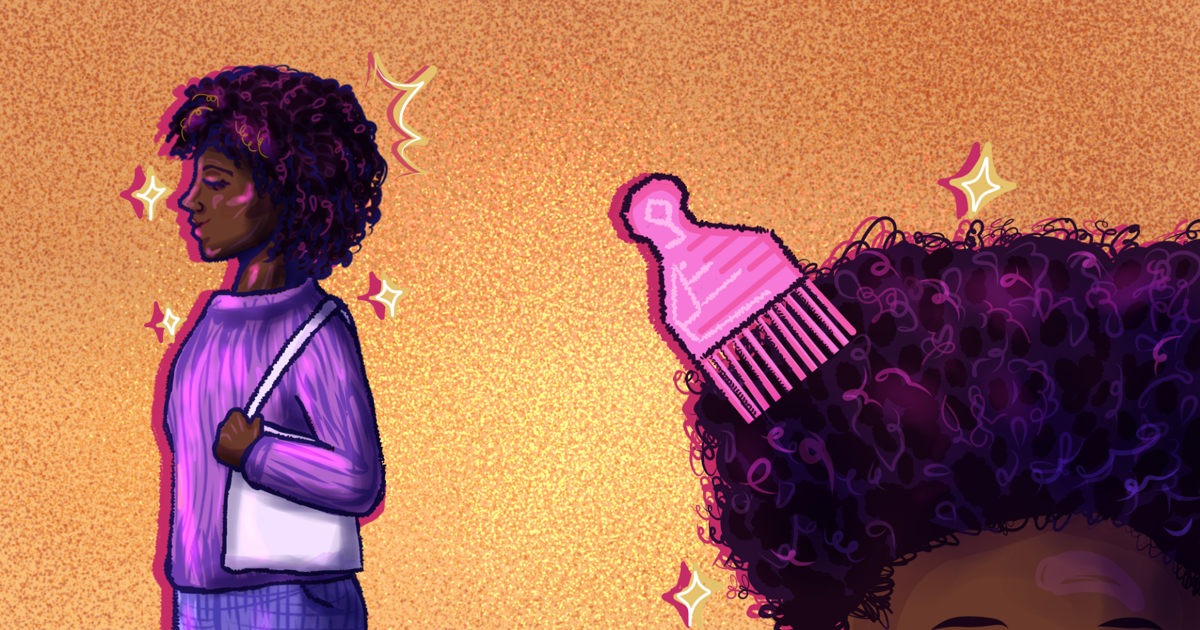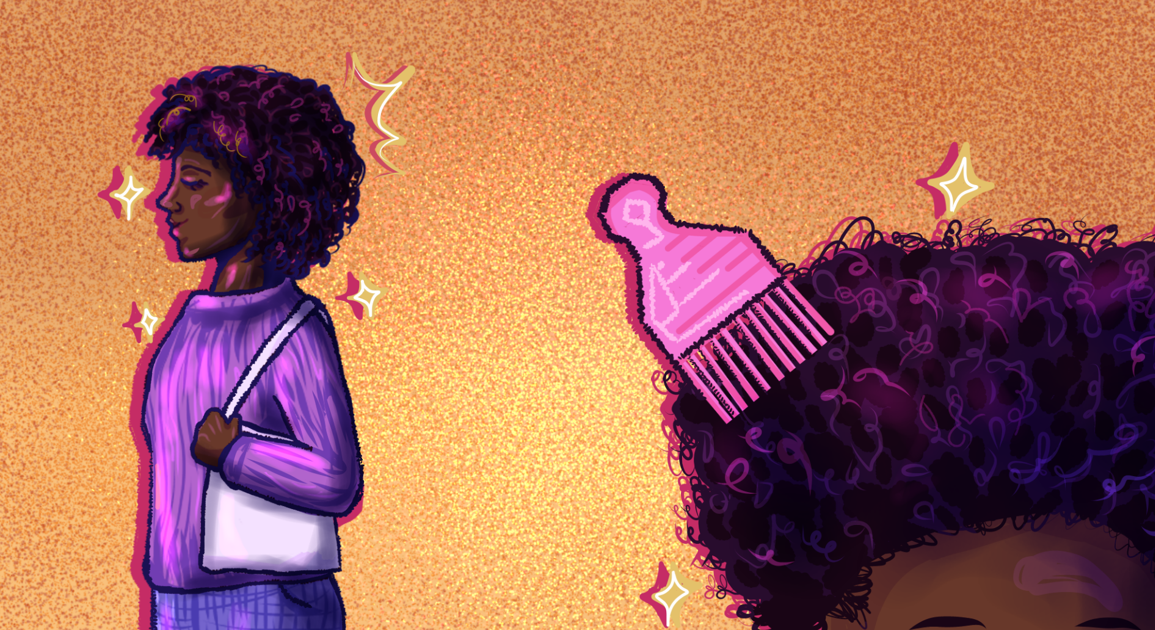
Natural hair is on the rise. As more Black women and women of color embrace their curls, coils and locs, society reflects on how far it has come to love women’s natural textures and how much progress has been made.
Curly and proud is the new “72-inch Bussdown” for the Black community. The new decade reports a surge in Black female entrepreneurs launching hair care product lines targeting Black textures and curl patterns. This is revolutionary for African Americans, given the deep-rooted suppression of the now-popularized Afro. And it is all thanks to the rise in Black girls embracing their natural hair.
The evolution of African American hairstyles started with colonialism. When African Americans were brought overseas, they were stripped of their cultural identity and taught to appease the Eurocentric beauty standards. Some of the most popular hairstyles today were rooted in natural hair suppression, such as the wig, the silk press, the quick-weave and the keratin perm.
These types of styles were meant to shave down the differences in features between white and Black women in hopes of making the African American woman appear more “proper” and “feminine,” brainwashing them into the subconscious belief that how they came to be on this earth is not feminine, not proper and not enough.
Black girls were taught from an early age to keep their hair tied up and pressed out, their curls tucked away and hidden, in hopes of being seen, heard and respected in environments such as the workplace, school and other general social settings.
The stereotype that “Black people can’t swim” holds a deeper meaning than the perceived lack of outside experiences with water, widely perpetuated by Jim Crow. Growing up, a lot of Black girls avoided water due to the fear of exposing their natural hair.
This stems from their straightened hair reverting to its natural texture when wet. For decades, societal beauty standards prioritized straight hair, making swimming a challenge for those who wanted to avoid the time-consuming process of restyling or the stigma surrounding natural hair.
Oppression of the Afro was not only indoctrinated into the minds of Black children at home and in school, as the workplace would be the next checkpoint for them to be told that they were not accepted.
Before the statewide passing of the C.R.O.W.N. Act, employers were allowed to discriminate against Black women due to the style of their hair.
The CROWN. Act, which stands for Creating a Respectful Workplace for Natural Hair, is a California law that prohibits racial discrimination against natural hairstyles in the workplace and the classroom. As a result of the efforts from the CROWN coalition, this type of legislation has been passed across 30 states in America since 2024. Efforts to make the CROWN Act a federal law have been introduced to the U.S. House of Representatives and the U.S. Senate.
African American women were the highest out of all demographics to be turned down for job opportunities because of their hairstyle. Being fired, having their promotions revoked and not landing the job solely due to the state of their hair were all common occurrences. This form of workplace discrimination was not impartial and was directly for Black women.
America has grown far more diverse as a country, leading to the passage of laws allowing people of color to be protected against discrimination, which holds the description of America as “the land of the free” much more true to its name. Due to the fight for representation, humility and civility toward African American men and women, on behalf of respected activists, the country is reaching greater heights of divine self-acceptance toward the strands that yield melanated scalps.
This is thanks to the resurfacing of the natural hair movementthroughsocial media. Platforms such as YouTube, Instagram and X, formerly known as Twitter, have expanded the world’s beauty industry and broadened the expectations of what is to be considered beautiful. Content creation platforms like Instagram and YouTube have made it easier for Black girls to access information to learn how to care for their hair, rock a natural style and embrace the hair that behooves them.
Natural hair is a necessary addition to the Black woman’s self-hood. A woman’s hair, playing a crucial part in her appearance, is a powerful expression of identity, self-acceptance and cultural pride. With the major strides that the Black community is making in attempts to create space for people to show themselves in their truest and rawest form, the community must say grace.
This post was originally published on this site be sure to check out more of their content.









